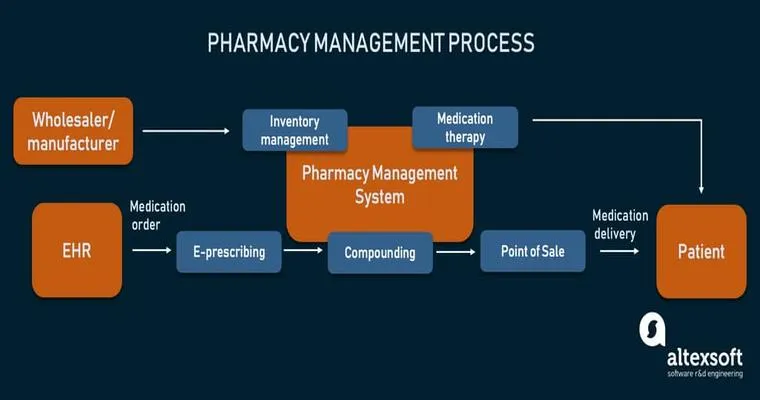In today's fast-paced world, managing your "medications" can often feel overwhelming. With the increasing number of "prescriptions", "over-the-counter drugs", and "supplements" available, it is essential to have a reliable resource to help navigate this complexity. Consulting a "pharmacist" can be a game changer in simplifying your "medication management" process, ensuring you take the right medications at the right times, and understanding potential interactions.
Pharmacists are trained professionals who specialize in medication therapy management. They possess a wealth of knowledge about various "medications", including their uses, side effects, and interactions with other drugs or food. By consulting a pharmacist, you can gain valuable insights that can help you optimize your treatment plan. Here are some key reasons why you should consider reaching out to your pharmacist for medication management:
1. "Personalized Medication Review": Pharmacists can conduct a thorough review of your current medications, identifying any potential issues such as duplicate therapies or unnecessary prescriptions. This personalized approach helps ensure that you are only taking what is necessary for your health.
2. "Understanding Side Effects": Each medication comes with its own set of potential side effects. A pharmacist can explain these effects to you in detail, helping you understand what to expect and when to seek medical attention if needed. This knowledge can alleviate anxiety and empower you to manage your health more effectively.
3. "Medication Synchronization": For individuals taking multiple medications, managing refill dates can be a logistical challenge. Pharmacists can assist in synchronizing your medication refills, making it easier to remember when to take each medication and reducing the number of trips to the pharmacy.
4. "Drug Interaction Checks": One of the primary roles of a pharmacist is to monitor for potential drug interactions. By consulting with your pharmacist, you can ensure that your medications are safe to take together, minimizing the risk of adverse effects and enhancing the efficacy of your treatment.
5. "Adherence Support": Medication adherence is crucial for achieving desired health outcomes. Pharmacists can provide strategies and tools to help you stay on track with your medication regimen, whether through medication reminders, pill organizers, or other innovative solutions.
6. "Access to Resources": Pharmacists are often well-connected within the healthcare system. They can refer you to additional resources, such as support groups or educational materials, that can aid in your understanding of your health conditions and treatments.
7. "Cost-Effective Solutions": Managing costs is a significant concern for many individuals. Pharmacists can help you identify more affordable alternatives to your current medications, including generic options, discount programs, or patient assistance programs.
In conclusion, consulting a pharmacist is an invaluable step in "simplifying medication management". By leveraging their expertise, you can ensure that your medication regimen is safe, effective, and tailored to your individual needs. Don’t hesitate to take advantage of this resource; your health and well-being deserve it. Whether you have questions about a new prescription or need guidance on managing your current medications, your pharmacist is there to help you navigate the complexities of medication management with confidence.





